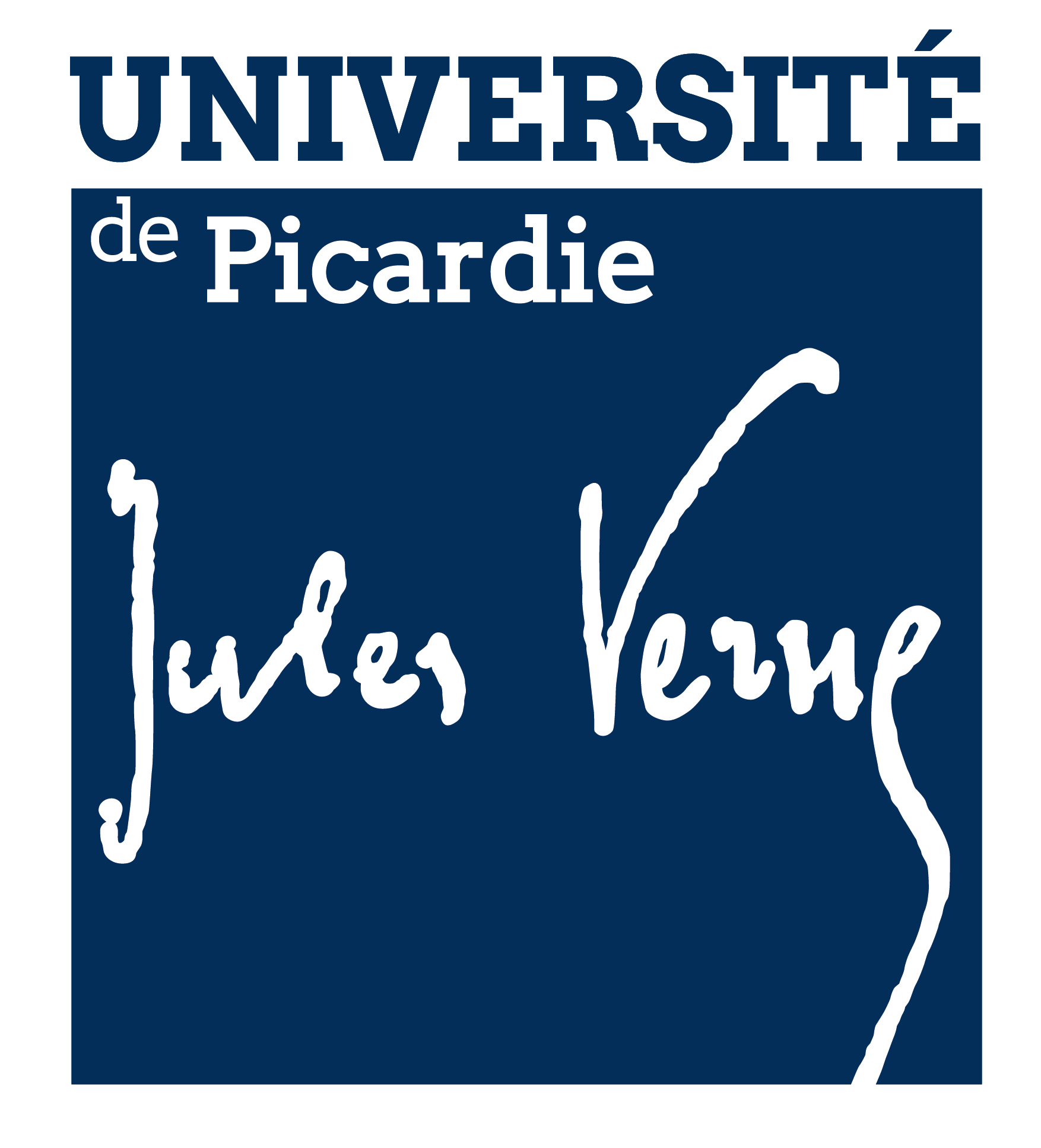-
Digital World and Robotics
The Amiens Laboratory of Fundamental and Applied Mathematics (LAMFA)
Research unit - UMR 7352
The Laboratoire Amiénois de mathématique fondamentale et appliquée [Amiens Laboratory of Fundamental and Applied Mathematics] (LAMFA) brings together mathematicians in position at the UPJV, academics and CNRS researchers.
Through its three research teams (A3, SymPA, GAT), it maintains a balance between fundamental research and applied research while at the same time deploying a high degree of scientific dissemination activity, structured around the cross-disciplinary team "Mathematics for the general public".
Our unit strives to maintain a high level of scientific recognition at a national and international scale, while at the same time developing interactions with other disciplines at the regional level.
-
Christelle Calimez
Secretary -
David Chataur
Director -
Mylène Gaudissart
Secretary
33 rue Saint Leu
UFR des Sciences
80039 AMIENS Cedex
https://www.lamfa.u-picardie.fr/

Effectif
Effectif total : 67
Personnel de recherche : 48
Personnel d'appui à la recherche : 2
Skills
The SymPA team gathers research domains centered around dynamical systems :
• Ergodic theory;
• Tilings, dynamical systems on Cantor sets;
• Complex dynamics with one and several variables
• Multifractal analysis;
• Probability theory, Markov chains;
• P-adic dynamical systems, number theory;
• Hamiltonian systems and geodesic flow, integrability, polynomial entropy
2. Geometry, Algebra, Topology team (GAT)
• Finite and p-adic reductive groups, Coxeter groups, complex reflexion groups, Hecke algebras, relations with the Langlands programme;
• Braid groups and their representations, centralizer
and diagram algebras, geometric galois actions;
• Representations of algebras, derived categories and ex-triangulated categories, algebras and cluster categories. Hochschild's (co)homology and geometric representations;
• Group categories associated with bisets, Mackey functors, Burnside rings, fusion systems.
• Quantum groups, crystalline bases, combinatorics, cryptography;
• Algebraic topology, operads, homotopical algebra.
3. Applied Analysis (Team A^3)
The scientific expertise of the A³ team covers a broad field of applied analysis, from theoretical aspects to applications:
• Partial differential equations: Elliptical PDEs, hyperbolic or dispersive;
• Dynamic systems in infinite dimension;
• Calculation of variations;
• Numerical linear algebra and optimization;
• Domain decomposition methods;
• Inverse numerical problems;
• Data processing, identification
Example(s) of projects
Interplay between theoretical computer science and mathematics, dynamical analysis of algorithms.
Leader: V. Berthé (Paris Diderot University)
Partners: F. Paccaut (UPJV), S. Labbé (University of Bordeaux)
2. International project STIC - Math AmSud (France-Argentine-Uruguay)
Randomness and probabilistic Analysis of algorithms.
Partner: F. Paccaut (UPJV)
3. Hauts-de-France regional SODDA project - Wave Simulation: Dispersion, Diffusion, Randomness
The aim of the project is to analyze and simulate the propagation of hydrodynamic waves in shallow water with bathymetric.
Y. Mammeri (PI), O. Goubet
Funding: 123 000 €
4. PIA ADEME VERTPOM Project - Real energy of the Positive and Modular Territory
The aim of the Work Package, which is the responsibility of LAMFA, is to model energy distribution and to optimize the call for renewable energies to build a positive energy territory.
JP Chehab (WP IP), V. Desveaux, O. Goubet
Funding: 118 000 €
5. A2U ALLIANCE Project - LInear Algebra Applied to the 2D and 3D exploration of the Forest Environment of the present and the past
The ALLIANcE project aims to bring together Geohistorians and Ecologists of EDYSAN (UMR
CNRS 7058), LAMFA applied mathematicians (UMR CNRS 7352) and the LMPA (ULCO, EA 2597), to
identify and apply modern numerical methods suitable for data analysis from forest LiDAR renderings.
J.-P. Chehab (PI), O. Goubet, H. le Meur, V. Martin, Y. Mammeri
Funding: 10 000 €
Example(s) of publications
2. Fabien Durand, Dominique Perrin. Dimension Groups and Dynamical Systems. Cambridge University Press, 196, 2022, Cambridge Studies in Advanced Mathematics. 🡭
3. Martin Leguil, Zhiyuan Zhang. C r-prevalence of stable ergodicity for a class of partially hyperbolic systems. Journal of the European Mathematical Society, 2022, 24 (9), pp.3379-3438. 🡭
4. Alberto Farina, Jesus Ocariz. SPLITTING THEOREMS ON COMPLETE RIEMANNIAN MANIFOLDS WITH NONNEGATIVE RICCI CURVATURE. Discrete and Continuous Dynamical Systems - Series A, American Institute of Mathematical Sciences, 2021, 41 (4), pp.1929-1937. 🡭
5. Yann Palu, Vincent Pilaud, Pierre-Guy Plamondon. Non-kissing complexes and tau-tilting for gentle algebras. 2019. 🡭
All publications can be found here : 🡭
Collaborations/Partners/Scientific clients
International : Chinese Academy of Sciences (Chine), FloripaDynSys : School on Dynamics, Numeration and Tilings, Florianopolis (Brésil), Escula DySyCo, Dynamical Systems and Computation (Chili), Université Simon Bolivar (Venezuela). Institut Teknologi Bandung (Indonésie).
Collaborations/Partners/Private Clients
Services provided
Training offers
Consulting services
Affiliated institutions / organisations
Partner institution(s)
Groups/Networks/Federations
Doctoral schools
Regional strategic areas of activity
- Digital World and Robotics
- Digital modeling, digital twins, data visualization
- Engineering, software design, open source software
- Robotics, cobotics, Human-Machine interaction

